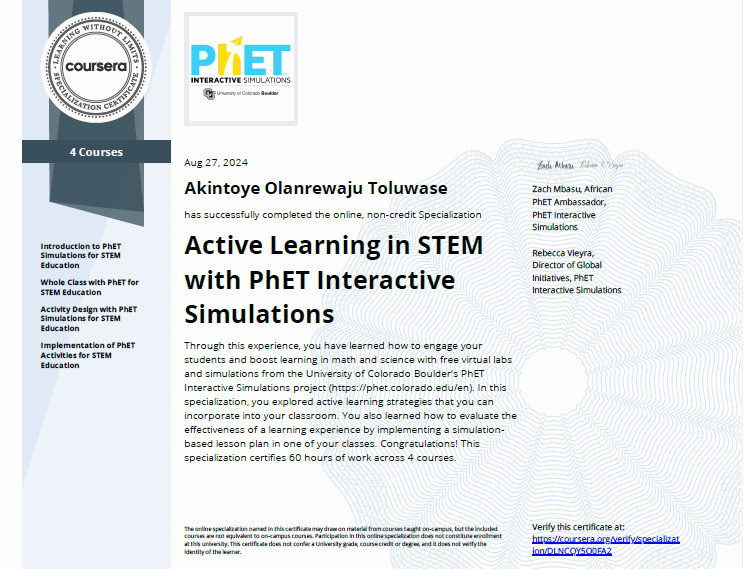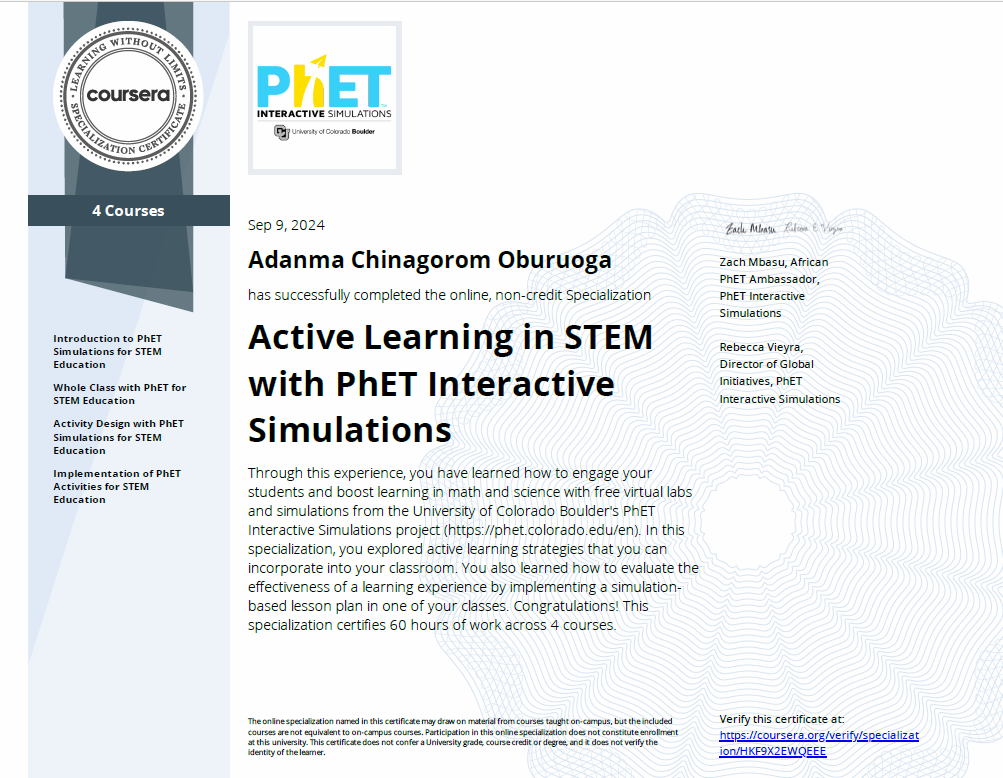The DTW Foundation, in collaboration with PhET Interactive Simulation, recently hosted a three-part virtual workshop series aimed at empowering STEM educators across Nigeria and Africa with innovative teaching tools.
Held in August 2024, this workshop series introduced PhET simulations, interactive technologies designed to enhance science and mathematics education. With over 300 active participants and more than 1500 registrants, the workshop was a major success, marking a significant step in advancing STEM education.
DTW Foundation is an educational organization founded by Mrs. Blessing Seun Chukwuka, dedicated to empowering students and educators across Nigeria and Africa. Through free resources and innovative teaching tools, the foundation focuses on enhancing STEM education, particularly in mathematics and science. DTW Foundation is well-known for organizing workshops, like the PhET simulation training, and providing video tutorials for national exams such as WASSCE, NECO, JAMB, JSCE, NCEE and more, through its educational YouTube channel – DTW Tutorials, which has over 63,000 subscribers. The foundation’s mission is to bridge educational gaps, promote interactive learning, and support educators in creating more engaging classroom environments.
PhET is a project from the University of Colorado Boulder that provides free interactive simulations for teaching and learning science and mathematics. These simulations cover subjects like physics, chemistry, biology, and math, making complex concepts easier to understand through hands-on exploration. PhET’s goal is to enhance classroom instruction by offering dynamic, visually engaging tools that promote inquiry-based learning and critical thinking. Accessible both online and offline, PhET simulations are widely used by educators around the world to create more interactive and engaging educational experiences for students.
Workshop 1: Introduction to PhET Simulations (August 7th, 2024)
The first session, held on August 7th, attracted over 260 STEM educators from various parts of Africa. Hosted via Zoom, the session kicked off with opening remarks from Mrs. Blessing Seun Chukwuka, founder of DTW Foundation, who welcomed esteemed facilitators, including Dr. Rebecca Vieyra from PhET Global, Professor Akinola Samson Olayinka from Edo State University, Uzairue, Mrs. Rita Oladiran, Founder BiSTEM24 EdTech, and Ms. Joy Chidinma, a seasoned Chemistry Educator.
Dr. Vieyra led the session by guiding participants through the PhET website, demonstrating how to access educational resources and download simulations for offline use. This was followed by Mrs. Oladiran’s interactive demonstration of PhET simulations, showing educators how the technology can transform classroom teaching. Professor Olayinka provided deeper insights into the pedagogical strategies for using PhET simulations, offering a practical approach for engaging students in inquiry-based learning. The session ended with an engaging Q&A, where educators voiced their enthusiasm for adopting the simulations.
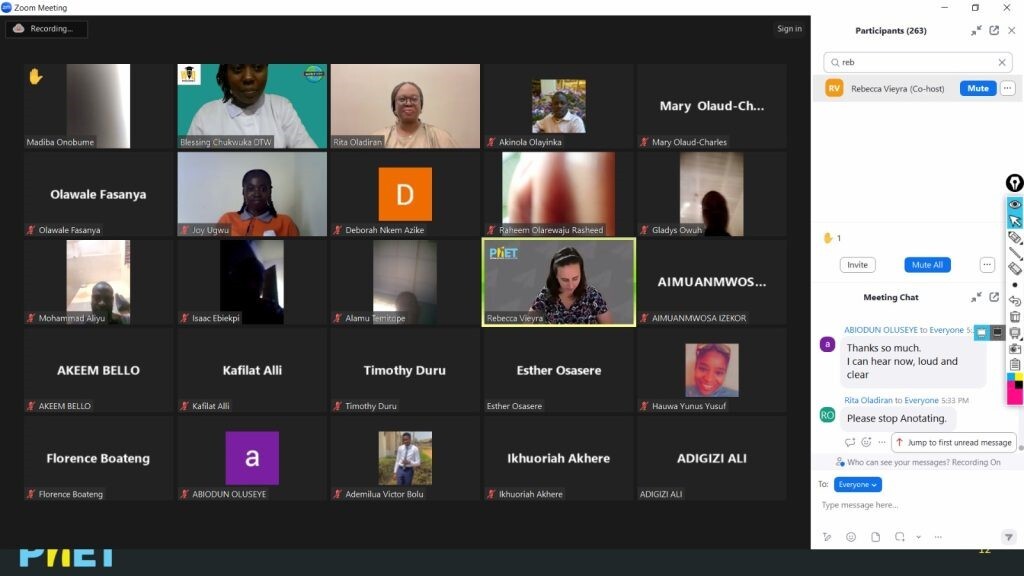
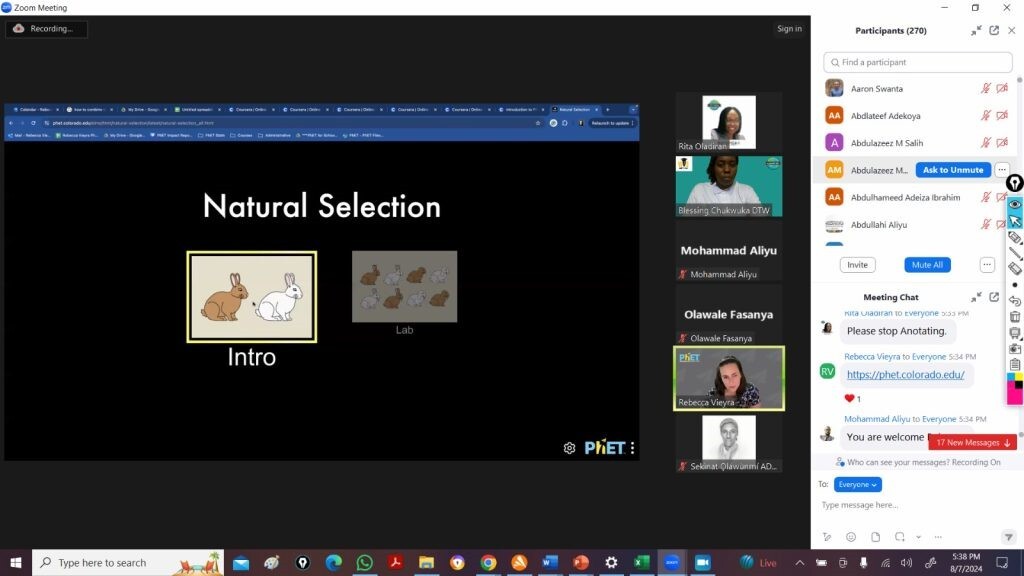
Workshop 2: Activity Design with PhET Simulations (August 14th, 2024)
The second session, held on August 14th, focused on designing effective classroom activities using PhET simulations. After addressing participant queries regarding access to PhET resources, the workshop transitioned into a deep dive into active learning strategies. Professor Olayinka introduced methods for creating tailored activity sheets designed to maximize student engagement. The session then split into subject-specific breakout rooms, where participants worked hands-on with simulations to create activity sheets. These interactive discussions fostered a sense of excitement and collaboration among educators, with many expressing eagerness to implement these strategies in their classrooms.
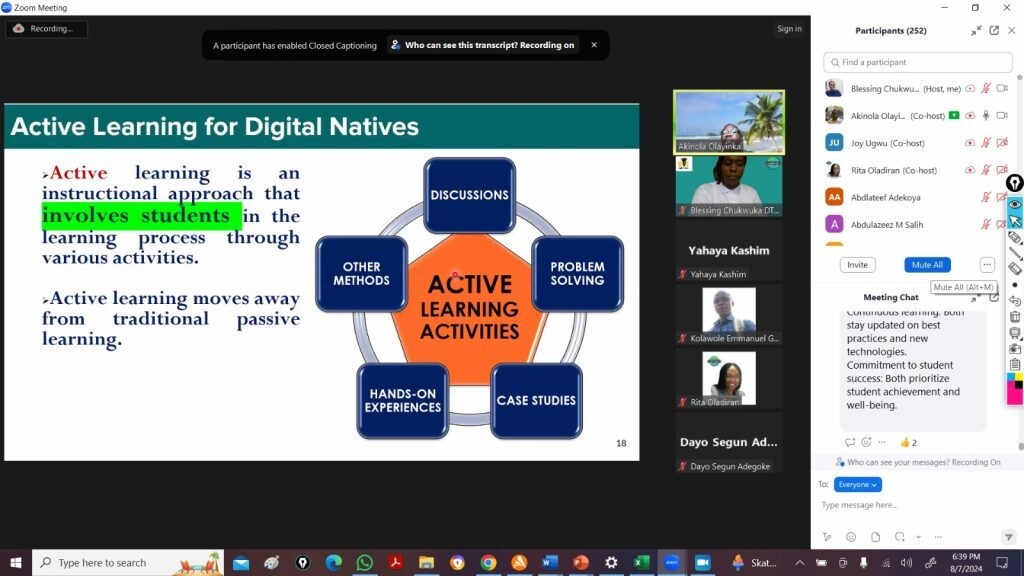
Workshop 3: PhET-Based Lesson Plans (August 21st, 2024)
The third and final session, held on August 21st, concentrated on creating and implementing PhET-based lesson plans. Professor Olayinka emphasized the importance of thorough planning when integrating simulations into lessons. Mrs. Oladiran outlined the structure of PhET lesson plans, stressing the need for open-ended questions and pre-lab assessments to ensure student preparedness. Ms. Chidinma shared her classroom experience using PhET simulations, offering practical advice for educators.
The session concluded with a robust discussion about the potential challenges of incorporating PhET lesson plans into traditional educational systems, particularly in terms of approval from external inspectors. Many educators proposed the creation of a centralized lesson plan database to support teachers in implementing PhET-based lessons, an idea the DTW Foundation is actively exploring.
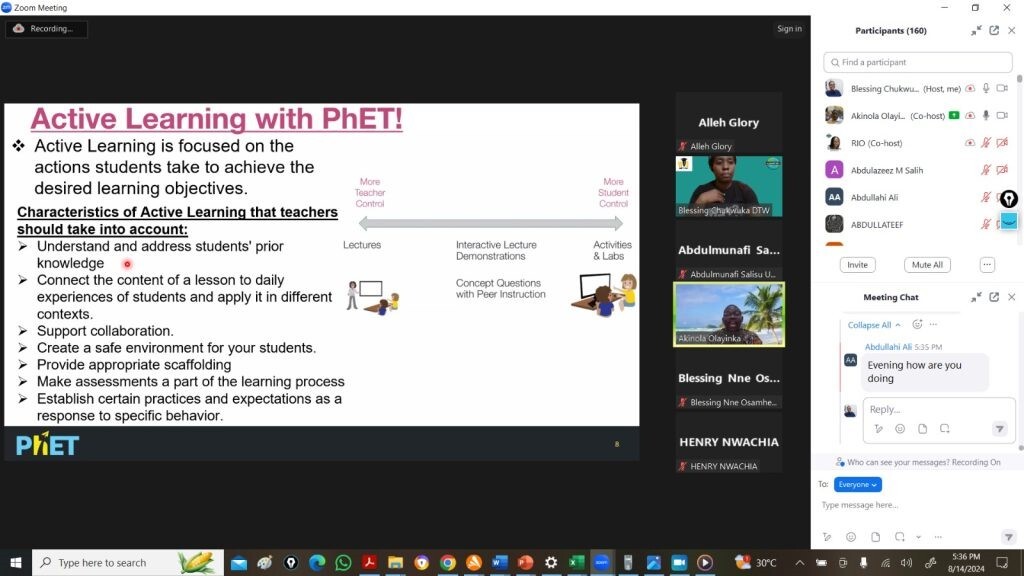
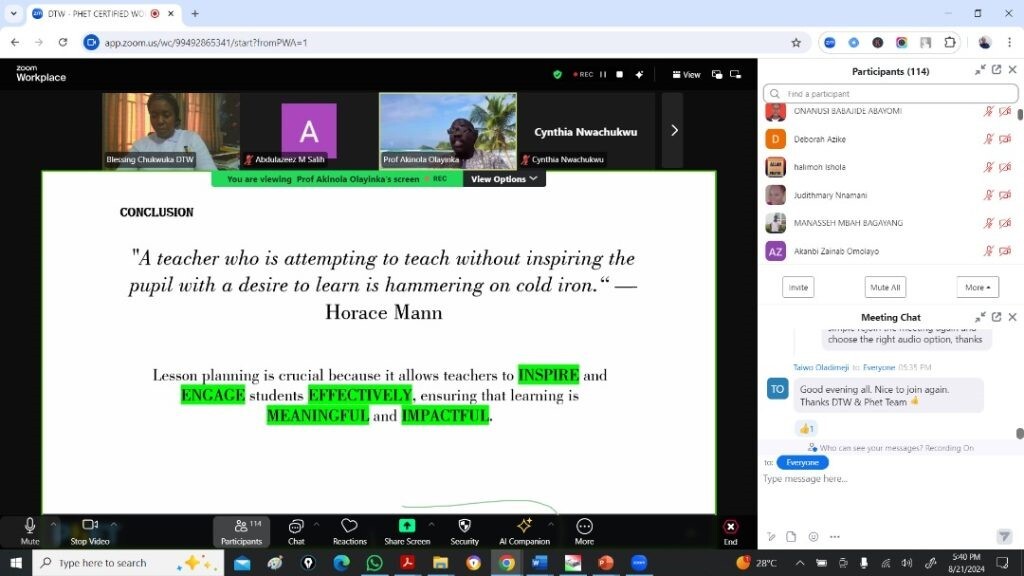
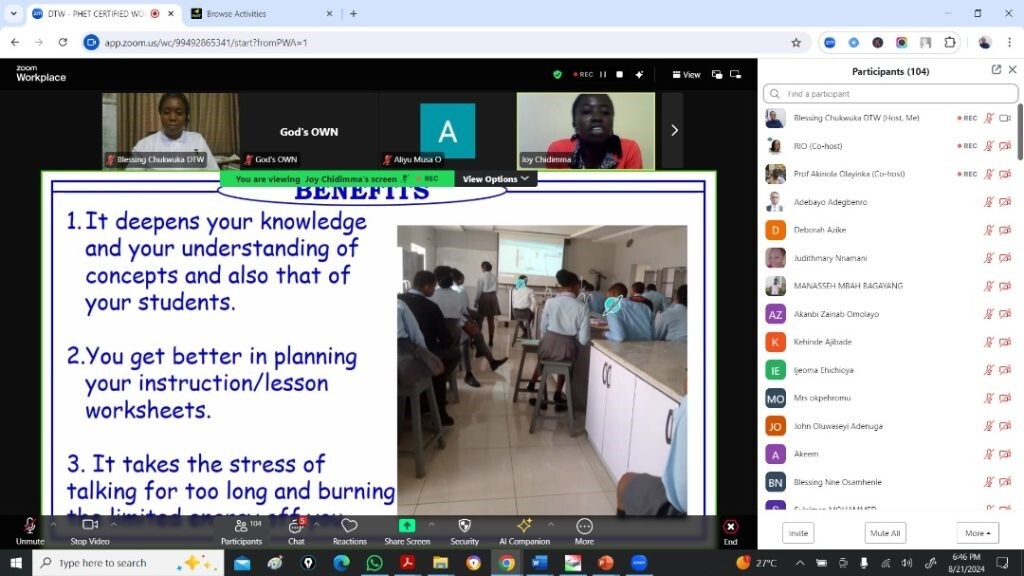
Impact and Future Plans
Throughout the three-part workshop series, educators across Nigeria embraced PhET simulations as a game-changing tool for STEM education. Participants shared their enthusiasm in the workshop’s WhatsApp group, where over 1200 educators exchanged ideas and posted their Coursera certificates after completing the PhET course. The course window remains open until October 29th, 2024, allowing more teachers to earn their certifications.
In addition to the positive feedback, the suggestion to create a centralized lesson plan database resonated strongly with participants. The DTW Foundation is committed to supporting educators by developing this initiative and fostering ongoing collaboration within the teaching community.
The success of the PhET workshop series demonstrates the growing momentum for integrating technology into STEM education, and DTW Foundation, alongside its partners, is determined to continue empowering educators across Nigeria. Through these workshops, teachers are now better equipped to create interactive, engaging classrooms that inspire the next generation of scientists and innovators.
